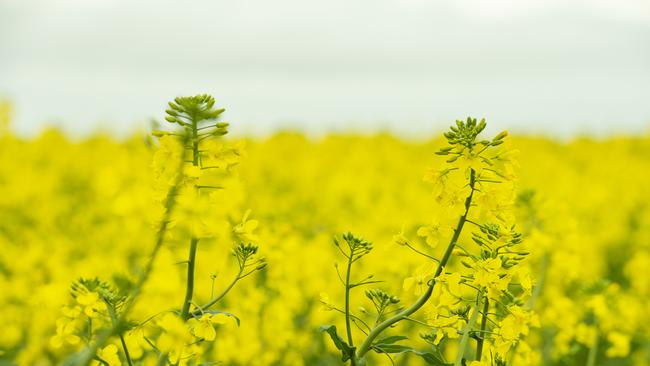ISCC rules: Australian canola growers hit by EU sustainability decree
Australian grain growers will be required to cut a percentage of their arable land out of production if they want to sell their canola in European Union countries.

Australian grain growers will be required to take 5 per cent of their arable land out of production if they want to sell their canola in European Union countries, according to Grain Producers Australia.
Through the International Sustainability and Carbon Certification scheme, the EU has decreed overseas canola suppliers must comply with new biofuel directives, which include rules relating to biodiversity and pollinator.
The ISCC arrangements are administered in Australia by Sustainable Grain Australia — set up by the Australian Oilseeds Federation — and the CBH Group in Western Australia.
The Weekly Times understands these ISCC sustainability requirements in the past are how Australian farmers were able to access the EU canola market.
A large proportion of Australia’s canola is exported to Europe for biodiesel production.
GPA southern director Andrew Weidemann said the new ISCC Biodiversity and Pollinator Action Plan stated Australian farmers were required to set aside at least 5 per cent of their arable farming area for the protection of pollinators.
Mr Weidemann said European farmers were required to do the same but the EU subsidised them to take land out of production.
He said, under the new ISCC rules, Australian canola growers who did not agree to take 5 per cent of their land out of production would be cut out of the EU market.
He said the issue was one of sovereignty, whereby the EU was dictating how Australian farmers must carry out their business.
“We have to step up in the market place and say we’re going to protect the Australian grain grower and make sure they don’t have to meet the requirements set by another country,” he said.
Mr Weidemann said the EU’s other big canola supplier, Canada, had similar concerns about the new ISCC biodiversity requirements.
“We should be combining with Canada and say to the EU: if you want our canola, these are the rules you are going to have to play by,” he said.
The GPA has been concerned for some time the ISCC rules would eventually creep into other grains, such as barley, where a lot of Australian malt was exported to EU countries.
GPA chairman Barry Large said the biodiversity rules required Australian farmers to declare whether there were any species or animals considered protected or threatened on their properties.
Mr Large suggested Australia needed to develop its own sustainability scheme.
He said growers needed to be satisfied that the extra paperwork required in their businesses will be reflected in a guaranteed premium from selling grain under the ISCC system, rather than growers copping penalties for not complying with EU sustainability laws.
“If our farmers are running multimillion-dollar businesses, using cutting-edge technology, and producing the world’s best product, as stated by Federal Agriculture Minister David Littleproud, we also need an Australian sustainability scheme to demonstrate this to all global markets and can capture the best commercial opportunities and optimise value for everyone,” he said.
“Grains Australia Limited is the logical home for such a scheme to be managed with grower and industry oversight, to ensure it is guided by sound science backed by independent regulation — not populist opinion — and reflects the unique climate and requirements of Australian farming systems.”




